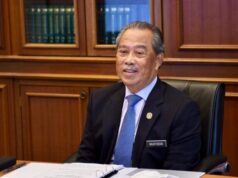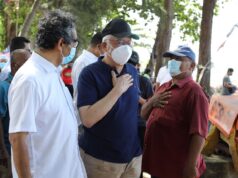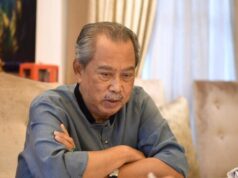PUTRAJAYA, July 19- The government’s effort of making the subject, Islamic Civilization and Asian Civilization (Titas), compulsory for students of local private institutions of higher learning (IPTS) would not convert non-Muslim students to Islam.


“It is not a programme to convert non-Muslim students to Islam.
“We have implemented it (Titas) at the public institutions of higher learning for so long and it has not become an issue although non-Muslim students also take the subject,” he said at a special gathering and breaking of fast with about 1,000 staff of the Education Ministry at his official residence, Sri Satria, here, Thursday.
Also present were Deputy Education Ministers Datuk Mary Yap Kain Ching and P.Kamalanathan and the ministry’s secretary-general Datuk Dr Madinah Mohamad.
Last Thursday, Muhyiddin announced in Parliament that the subject Titas would be made compulsory for new intakes at the local IPTS from Sept 1.


Muhyiddin said Titas would boost understanding of the major civilizations in Asia including Islamic, Hindu and Chinese so that students could appreciate religious values, understand the progress and achievements in the formation of civilizations that were great in the fields of science, technology, astronomy, chemistry, medicine, physics and others.
“By understanding the noble values of every religion, we can get rid of any feeling of prejudice towards the practitioners of other religions, and I am confident we can at the same time, boost mutual understanding and strengthen unity among our multiracial and multi-religious populace,” he said.
Meanwhile, Muhyiddin said the National Education Blueprint would continue to stress on the aspect of harmony in the relations between religions and exposing students to noble values that could be shared.
“For us who live in a plural society, a big challenge we face from the past until today is how to turn education into a vehicle of unity.
“Pupils coming from different backgrounds, races and religions must be guided so that they respect the custom, culture and religions of all communities,” he said.
Muhyiddin also said that Islamic Education was an important component which stressed on appreciating spiritual values to Muslim students so that they become complete, individuals of faith and God-fearing.
For non-Muslim students, he said moral education emphasised on noble values which should be fostered so that they become wise individuals with good values and character.
Meanwhile, Muhyiddin suggested that the staff of the Education Ministry cooperate and endeavour to achieve targets and excellence.
“The public hopes for a big shift from the merging of the two ministries (Education and Higher Education). In this regard, all staff must fully utilise their skills and expertise to further improve the national education system.
“I am aware of the big challenge we are about to face. We need the support, cooperation and assistance to make the national education policy a success,” he said.
– BERNAMA










